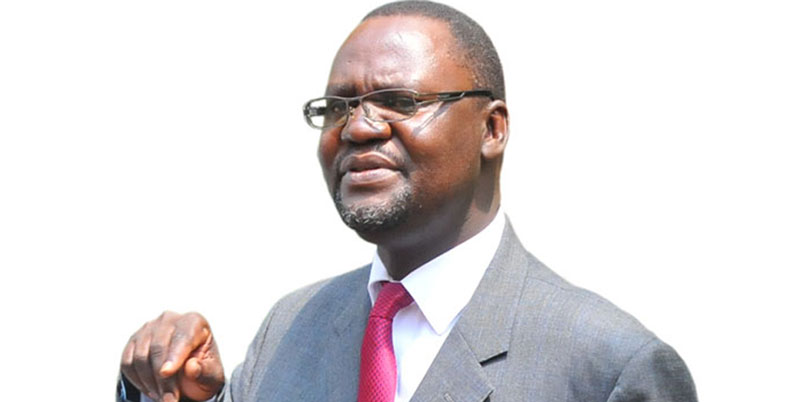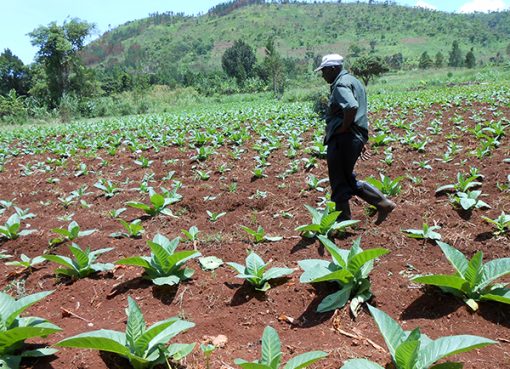Details why eight MPs on the Legal and Parliamentary Affairs Committee drafted a minority report on the proposed scrapping of the constitutional age limits have emerged.
The MPs on the Legal Committee opposed to amending Article 102 (b) in order to allow a person above 75 years of age as well as those below 35 stand for President include Medard Lubega Sseggona (Busiro East , D.P), Wilfred Niwagaba (Ndorwa East, Indep), Abdul Katuntu (Bugweri County, FDC), Mathias Mpuuga (Masaka Municipality, DP), Monica Amoding (Kumi District, NRM), Mohammad Nsereko (Kampala Central, Indep), Semujju Ibrahim Nganda (Kira Municipality, FDC) and Ann Adeke Ebaju (National Youth (Female), Indep)
The minority report observes that the amendment is only brought for the convenience of the President (Museveni) just like the removal of term limits.
“The argument that the issue of age limit removal is a political question to be resolved by the parliament ought to consider that the power emanates from the people who should be consulted and that this is the only way of putting in effect the spirit of Article I of the Constitution,” the report reads in part.
“…the minority members are of the opinion that repealing Article l02(b) of the Constitution is very dangerous as it is being done for only one possible beneficiary, the current President.”
The Constitution Amendment (No2) Bill 2017 was brought up by Igara West MP, Raphael Magyezi and has received a lot of oppositions from Ugandans from all walks of life.
However, NRM banks on its numerical strength to pass this unpopular Bill.
The Minority report adds that Constitutional amendments are never made for some people, but for posterity peace, order and governance. This is the practice among the civilized Nations guided by their Leaders.
“Article l02 (b) has not yet been tested and we find ourselves in no stalemate with it,” the MPs add.
Some proponents of the Bill have argued that the continuity of Article l02 (b) of the Constitution will threaten peace and tranquility both within Uganda, East Africa and Africa as a continent and that it shall impact on development and slow down the achievements registered since l986.
However, the minority MPs’ report rejects that opinion, referring to it as political blackmail whose effect is the destruction of institutions and the institutionalized individuals.
They argue that there are examples in Africa where there have been peaceful change of great leaders to another without injuring institutions, systems and tranquility.
“All that a country needs are safety valves, shared vision and spirit of constitutionalism that drive their resolve to their constitution,” they argue, adding: “ Examples of such progressive countries include Zambia, Ghana, Tanzania, Kenya, lvory Coast, Senegal, Nigeria and Kenya to mention but a few.”
They add that the proposed amendment especially on lifting age limit is a political action whose consequences are far reaching and injurious to the democratic growth of Uganda.
“It is an idea that all Ugandans should to the extent possible express themselves on if we are to alter their consensus as expressed in the current constitution,” the report says.
Argument that fulfill Supreme Court Ruling
The MPs add that the mover is not the Attorney General whom the court directed to take action. The Attorney General according to the date of Judgment which is 26th August 2016 is still within time to comply with the directives of court.
And after taking action, he was supposed to file a report to court. The presentation of the Bill by the said Private Member (Magyezi) cannot be in compliance of terms and directives of the Supreme Court rather it’s the actions of an overzealous member of the House who should not hide under the clock of that judgment, the MPs say in their report.
“Indeed the age limit was never on issue before Court. The critical issues before Court are contained in that judgment [but] have deliberately been left out of this Bill,” it adds.
Further, the Certificate of Financial implication by the Minister of Finance upon which the Bill was premised is offensive to Section 76 of Uganda Public Finance Management Act, 2015 which provides as follows;
- b) In microscopic event that the reference was being mode to Constitutional (Amendment) (No-2) Bill of 2017, falsely indicates that the Bill has no possibility of inflicting any additional cost on MTEF, yet as minority we have observed that Parliament has already spent over l3 billion shillings that had not been budgeted previously for facilitating members to carry out consultations.
Article 102(B) Of The Constitution Discriminatory?
- “The minority reject the assertion by our majority brethren to the effect that Article l02(b) is discriminatory against people on account of old age within the meaning of Articles 21 and 32 of the Constitution,” report reads.
“We agree with numerous stakeholders who distinguished discrimination from limitation or restriction.”
Equal opportunities Commission argued that age is not an element enshrined in Article 2 of the Constitution that describes what amounts to discrimination.
This was echoed by Uganda Law Reform Commission, Prof. Edward Fredrick Sempebwa, Prof. Mwambusya Ndebesa and Peter Muliira.
The MPs say they agree with them on that being the correct interpretation of the Article.
They add that Article 2l (3) of the Constitution provides thus, “For the purposes of this Article, “discriminate” means to give different treatment to different persons attributable only or mainly to their respective descriptions by sex, race, colour, ethnic origin, tribe, birth, creed or religion, social or economic a political opinion or disability”.
The tenets of discrimination under Article 21 are exhausted therein and any addition thereto amounts to an amendment of the Constitution which is not acceptable in the manner of hand.
“The minority observe that the limitation placed by Article l02 (b) of the constitution is justified within the ambit of Article 43 (2) (c) of the constitution,” they say.
Article 43(2) provides situations where limitation may be placed in public interest and in particular Article 43(2) (c) provides thus; we were unable to come across any imbalances arising out of or connected to age as a factor for it to amount to discrimination in the terms of Article 2l so as to require redress under Article 32.”
“We never come across any person complaining about discrimination on account of age so as to come within the ambit of Article 32(l) of the Constitution. No Ugandan had ever offered to contest for presidency being below the age of 35 or above 25 ever since the limitation clause was enacted in 1995,” they argue.
“The minority therefore is of the opinion that Article l02 (b) does not discriminate on account of age, but only on qualification like any other, e.g. Article l02 (o) requires that for one to be President, he/she must be a citizen of Uganda by birth.
Equally, Article .l02 (c) requires that for one to become president, he/she must qualify to be a Member of Parliament of provided under Article B0 (l) of the Constitution.
Whether the amendment bill is a Recipe for political and Constitutional instability:
Dr. Mwambutsya Ndebesa opined that the proposed amendment of article l02 (b) is likely to cause constitutional and political instability.
That the removal of age limits promotes the strongman phenomenon that slows the growth and development of state institutions in Uganda’s political order.
“We observe that incumbent Presidents with executive powers and control over National resources have from the time of independence used state machinery to manipulate the people and systems to claim artificial popularity. There is no record of any former president who was not popular up to the time of their respective overthrow,” they say, adding that, “It is the view of the minority that amending Article ,l02(b) of the Constitution is likely to throw the country into chaos and instability as it promotes self-seeking by incumbents. African states are fond of having constitutions for regimes and presidents other than the population.”
They add that all countries that have amended their constitutions in reference to both age and term limits have done so to favor the incumbents.






l have read the leaks of the two reports but my observation and conclusion is that unlike the Majority report which was vexatious,conjuncture,undemocratic and frivolous,Minority report is factual and democratic.Therefore, l urge MPs to focus and use their country